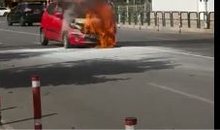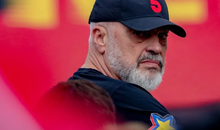
 Flash News
Flash News
The body of a 29-year-old man in Klos is found after 6 days
Arrested a few meters from SPAK, the Special Prosecution seeks 17 years in prison for the drug 'boss'
Giro D'Italia starts today, here are the road axes that will be blocked in Tirana from 13:00-18:00
Who is the new Pope?
Pope Leo XIV greets the faithful for the first time in St. Peter's Square
Why the two Assemblies did not unite, but emphasized the divisions and problems of the Albanian nation
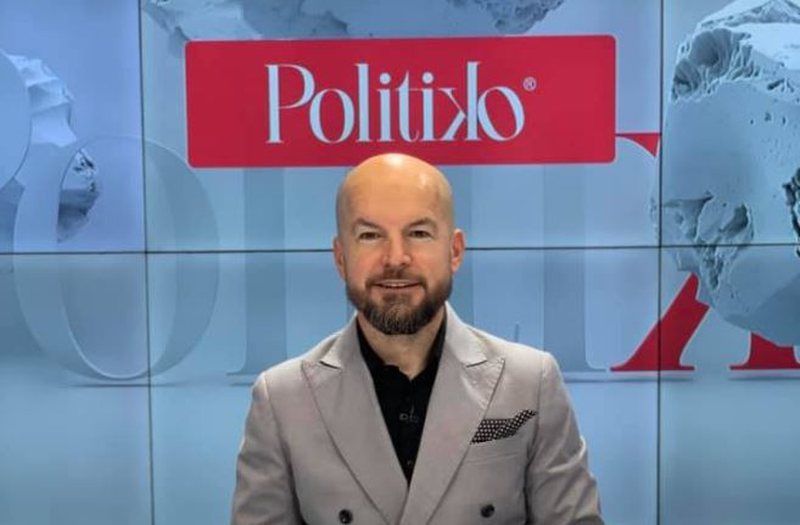
Alfred Lela
Edi Rama provided the setting for the unification on Sunday in the Parliament of Albania, but at the same time, he highlighted the big pitfalls of "unity", some of which, not all, of course, are also his work.
In the evil satisfaction that diversion gives to the opponent, KM forgot that unity, first of all, is ensured through opposites and only by respecting the opposites, i.e. what constitutes the rule, unity, i.e. the exception can be realized. In the Assembly, probably nationwide on Sunday, when the representatives of the parliamentary groups spoke, in the name of the opposition, that is, the Democratic Party, Enkelejd Alibeaj climbed the podium. On both levels, both political and legal, Mr. Alibai does not represent the most significant opposition force. As far as the law is concerned, he is on trial with the 'other side, and as far as politics is concerned, he was defeated by the 'other side in the elections of March 6 of this year. So as a minority it is unrepresentative and as such also illegitimate.
Even Alibeaj himself, who is not a bad public speaker, barely 'brought out the speech of November 27, as if his unconscious told him that what he was doing was an exaggeration for the sake of Rama and not merit.
Secondly, Mr. Rama committed an assassination attempt against himself, according to what is known as the paradigm of fair and balanced politics, the separation of powers. Although on a symbolic level, the calling of the special session with two assemblies, including governments formed by parliamentary majorities, but not the presidents, was another sign that the CM considers the parliament, as it is suspected, as an arm of the government.
The presidents and former presidents of Albania and Kosovo would honor such a 'unification' for the 110th anniversary of Independence and remove the quotes from unity. Rama, because he can't stand some of the former presidents, some say even the current one of Kosovo, Vjosa Osmani, celebrated the 110th anniversary of Independence with Albin Kurti.
Thirdly, Rama, a disciple of cancel culture coming from the American extreme left, retouched the history of Independence, pluralism, and European integration, on a day whose symbolism should speak of unity and reconciliation. In the stands displayed in the courtyard of the Assembly, the opposition, ie the Democratic Party and its exponents, such as Sali Berisha, Jozefina Topalli, and others, had disappeared from the calendar of events. At the integration stand, there were socialist parliamentarians and ministers or European dignitaries, but no one from today's opposition and yesterday's government. Let's remember once again, despite any cancel culture, that the Berisha Government of 2005-2013 laid the foundation stones in the European integration process of Albania: the signing of the SAA, membership in NATO, and the liberalization of visas.
Too bad that the current and temporary Albanian prime minister does not understand that in the affairs of the nation, the actuality is brief and the diversions even more so. For someone who quotes Faik Konica so much, apparently, he has borrowed more from his whims than his style. Even Faik Bey, when Esat Pasha clashed with the Provisional Government of Vlora and its chief Ismail Qemali, took the side of Toptan without sparing. Edi Rama was on Sunday a repetition of Esat Pasha in the affairs of Albania.
Latest news


The body of a 29-year-old man in Klos is found after 6 days
2025-05-09 12:01:27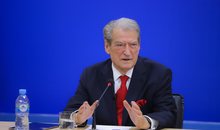
Berisha: After May 12, this opposition will become the majority in Albania
2025-05-09 11:52:37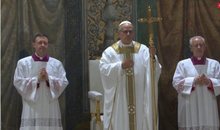
Leo XIV celebrates his first Mass as Pope
2025-05-09 11:42:34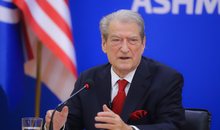
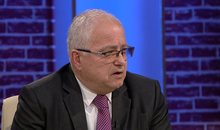
Spaho denounces: SP candidate in Pogradec gives 100 thousand lek for the vote
2025-05-09 11:27:26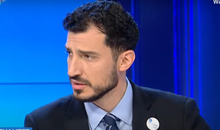
Mustafaj: Proud of the worthy campaign of the DP
2025-05-09 11:22:20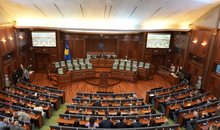
Constitution fails again, Kosovo still without a new Assembly
2025-05-09 11:06:55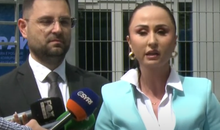

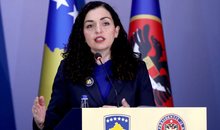
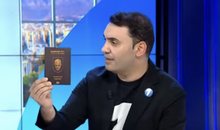


"Votes have no price", the US embassy in Tirana 'slaps' Rama
2025-05-09 10:06:49

Two young men arrested for supplying criminal groups with firearms
2025-05-09 09:45:19
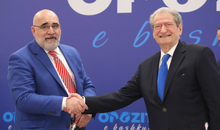

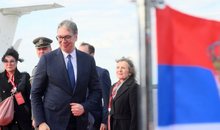

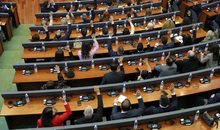


Foreign exchange/ How much foreign currencies are bought and sold today
2025-05-09 08:19:18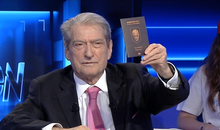
The gift that Berisha gave to Rama 'live'
2025-05-09 08:13:51
3 signs that show you are spiritually protected
2025-05-09 08:05:39

Bars can't hold back anymore, start increasing coffee prices, 4.7% more in April
2025-05-09 07:46:49
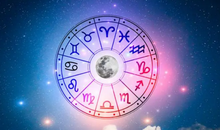
Horoscope, what do the stars have in store for you today?
2025-05-09 07:22:06
Unstable weather, afternoon brings rain
2025-05-09 07:01:29
Morning Post/ In 2 lines: What mattered yesterday in Albania
2025-05-09 06:45:46

How did LaCivita change the DP campaign? Berisha: He studied the opponent
2025-05-08 22:49:51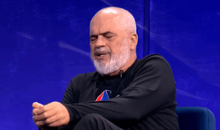

David defeats Goliath
2025-05-08 22:15:50

Journalist: There are SPAK infiltrators in party headquarters
2025-05-08 21:55:15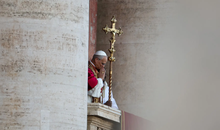
Who is the new Pope?
2025-05-08 21:48:13
Berisha finally reveals when he will retire from politics
2025-05-08 21:33:46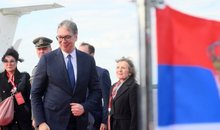

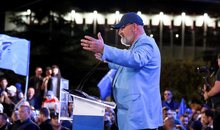
LaCivita in Lezha: Albanians will fire Edi Rama from his job
2025-05-08 21:11:20
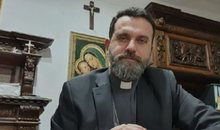

Berisha: LaCivita chose us because he believes in Reagan's program
2025-05-08 20:48:40
He rejected America to serve Pogradec, Genti Çela tells about life in "Elevate"
2025-05-08 20:26:28

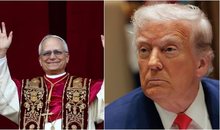

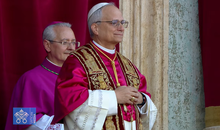
Pope Leo XIV greets the faithful for the first time in St. Peter's Square
2025-05-08 19:29:33




Photo session with LaCivitta in Tirana: For Great Albania
2025-05-08 18:40:18
Source: DASH decision a personal victory for Berisha
2025-05-08 18:30:10
Take off those crazy glasses and see where you've taken him?
2025-05-08 18:02:47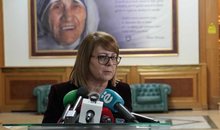
LDK files criminal charges against members of the incumbent Government
2025-05-08 18:02:00


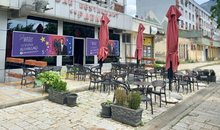




BIRN analysis: Tirana, the determining district for the future majority
2025-05-08 16:04:03
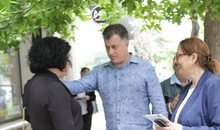


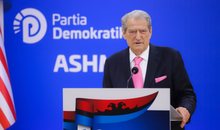
Chris LaCivita's contract with the DP, Berisha: 100% correct and clean
2025-05-08 15:11:11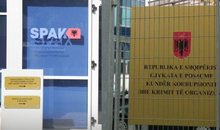
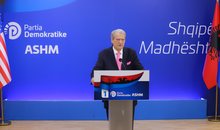
"These are the peak days", Berisha reveals when he will travel to the USA
2025-05-08 14:45:25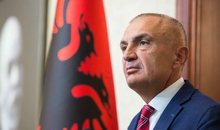
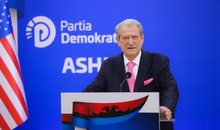

Endless boxes with filled-in ballots, DP demands separation of votes from Greece
2025-05-08 14:11:12


Photo/ Who are the 3 associates of Talo Çela arrested in Dubai?
2025-05-08 13:37:09
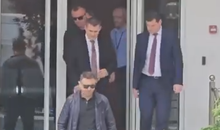
Hetimi për krimet zgjedhore, Altin Dumani zbarkon në Prokurorinë e Shkodrës
2025-05-08 13:06:21
DASH paves the way for Berisha, Alizoti: Great news on the eve of Great Albania!
2025-05-08 13:03:48
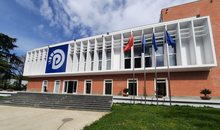
"Freedom works", DP welcomes the US position
2025-05-08 12:48:07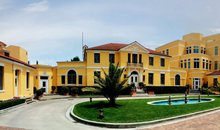
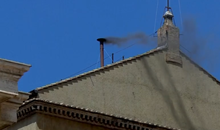
Black smoke rises from the Sistine Chapel, the Vatican still without a Pope
2025-05-08 12:26:18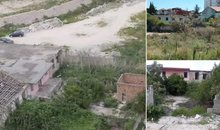
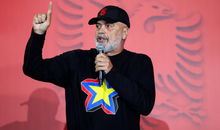
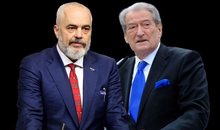



Davide Pecorrelli extradited to Albania
2025-05-08 11:29:04
'May 11, Albania will react', Xhaferri: Electoral criminals will pay
2025-05-08 11:21:46

Gjin Gjoni: Non Grata fell, Rama should get ready to go to McGonigal
2025-05-08 11:01:54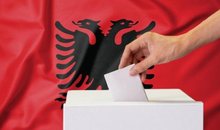
May 8th deadline for immigrants to vote in Greece extended by one day
2025-05-08 10:48:42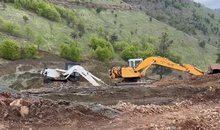
Collapse of massive chrome structure, still no trace of 29-year-old
2025-05-08 10:40:04